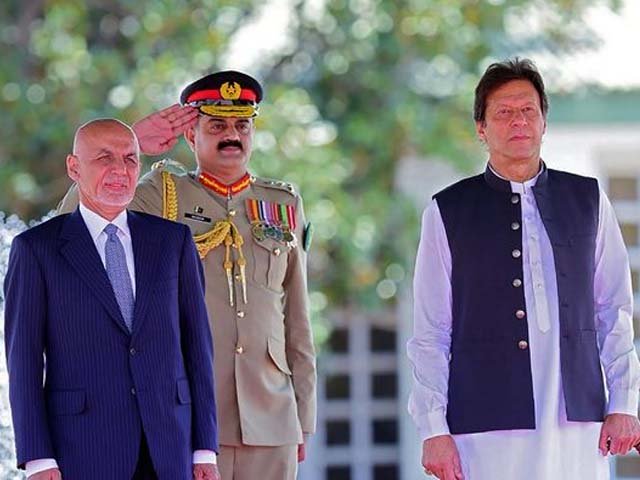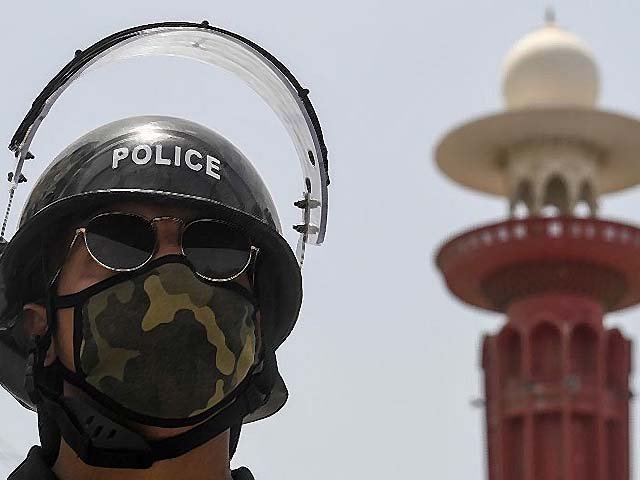
Of drone strikes: “Did we just kill a kid?”
His peers believed that they had killed a 'dog' and not a kid that day, and thus it was nothing to worry about.
“Did we just kill a kid?” asked Bryant, a drone sensor operator.
“Yes, I guess so!” replied the drone pilot.
Brandon Bryant’s recent exposé of drone operations killing hundreds of innocent civilians during his service, which led to his post-traumatic stress and retirement, explains the dark side of the CIA led US drone operations in Afghanistan, Pakistan, Yemen and Somalia.
Adding to Bryant’s shock and surprise, his peers believed that they had killed a dog and not a kid that day, and thus it was nothing to worry about.
Bryant worked as a drone sensor operator for the USAF from 2006 to 2011, mainly operating from a dark container at a facility in New Mexico. But his oversight of these operations, where he became directly and indirectly responsible for the death of more than 1,000 people, nagged at his conscience forcing him to call it quits.
Bryant claims that the operations that he participated in killed more than 1,600 people; the USAF, however, disputes this claim stating that the number killed, in Bryant’s operations alone, are far less. According to USAF, Bryant was a sensor operator guiding missiles and his operations killed 13 people.
Even with these suspicions, one cannot negate the fact CIA operated drone strikes have resulted in a number of innocent civilian casualties. To date, more than 400 drone strikes have hit FATA, with casualties floating between 2,500 and 4,000. The civilian casualties, as per the Bureau of Investigative Journalism, stand at a maximum probability of 959. Read that number again. That is nine hundred and fifty nine innocent people who were killed for no reason at all. Mistakenly killed. Collateral damage.
One important aspect in these numbers is the fact that the ratio of innocent casualties has drastically declined post 2011. Small Smart Missiles, or Scorpions, were deployed in 2009 on predator drones to reduce civilian casualties and increase surveillance.
The US administration has, time and again, defended the drone programme citing its effectiveness and legality as a primary justification. In May 2013, President Barack Obama stated,
“The terrorists we are after target civilians, and the death toll from their acts of terrorism dwarfs any estimate of civilian casualties from drone strikes.”
The problem with such statements is that on one hand, the effectiveness of the drone programme is boasted, whereas on the other, the same effectiveness is negated by casualties of innocent civilians.
One such major incident involving innocent casualties, especially those of children, was the Chenagai attack in 2006 where a local madrassa was struck on the suspicion that Ayman al-Zawahiri was present there. This attack killed 82 people, almost all of whom were children pursuing education. Other incidents involving attacks on funerals or rescuers post-drone strike have also been reported and come under heavy criticism.
Although Bryant’s confession on witnessing such catastrophes was revealed in 2013, the impact of his revelation was almost non-existent. According to some, Bryant’s supposedly jaded and burnt-out retiree reputation hold lesser credibility than on duty personnel like Chelsea (previously Bradley) Manning and Edward Snowden (with the NSA).
While international humanitarian and legal experts have called for greater transparency in the CIA drone programme – with calls for counting and declaring those who die or get injured in these strikes – their protests seem to land on deaf ears. With a very low number of casualties reported by both the US and Pakistani authorities, it seems that even an international push for transparency has gone in vain. In fact, an order by President Obama in 2013 defined all military-age males as combatants in the Af-Pak region, giving the US administration greater leverage in reporting a lower number of casualties.
Drones are one of those pills that even being somewhat effective, are hard to swallow. Although they have killed and decimated more than 50 high profile wanted terrorists and militant leaders, they have also killed hundreds of innocent civilians.
So, are drones good?
If eliminating terror spearheads is the barometer, then yes.
But then, are they bad?
Yes, because they have killed innocent civilians.
In short, supporting or opposing drone strikes is a tough nut to crack. As long as these Unmanned Aerial Vehicles are operational and used as war machines, the international community will always be divided in two groups – those who support them and those who don’t. The huge grey area, both with legal and social implications, makes it impossible to take a middle ground or principled stand on the issue.




COMMENTS (7)
Comments are moderated and generally will be posted if they are on-topic and not abusive.
For more information, please see our Comments FAQ